WhatsApp for Business
Updated: July 31, 2023
WhatsApp for Business is a specialized version of the popular messaging platform tailored to meet the communication needs of businesses and organizations. It offers a range of features to facilitate seamless interactions with customers, clients, and partners. WhatsApp Business allows businesses to create a verified business profile with essential information such as business hours, location, and contact details. It also offers automated messaging, enabling businesses to set up welcome messages, away messages, and quick replies to efficiently handle customer inquiries and provide instant responses. With the option to create broadcast lists, businesses can send targeted messages to specific customer segments, enhancing marketing efforts. Additionally, WhatsApp Business offers business metrics and analytics, allowing businesses to track message open rates and customer engagement. By leveraging WhatsApp for Business, companies can establish a more direct and personalized communication channel, build strong customer relationships, and provide exceptional customer service, all while benefiting from the vast user base of the popular messaging platform.
See also: Top 10 Business Messaging platforms
See also: Top 10 Business Messaging platforms
2022. Charles raises $20M to bring conversational commerce to WhatsApp in Europe
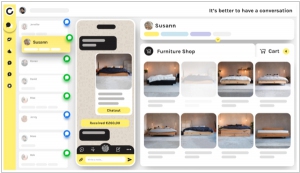
Conversational commerce has gained significant traction in Asia, primarily due to the influence of WeChat. However, it has yet to reach the same level of adoption in Europe. German startup Charles aims to change this dynamic with its recent $20 million funding. Charles offers a comprehensive platform that seamlessly integrates key components of conversational commerce with the marketing capabilities of newsletters. It positions itself as an end-to-end solution, encompassing both backend and interface functionalities. By connecting messaging service APIs like WhatsApp with popular e-commerce and CRM systems such as Shopify and Salesforce, businesses can facilitate product sales, distribute newsletters, and provide ongoing support to customers.
2019. WhatsApp’s Business app came to the iPhone
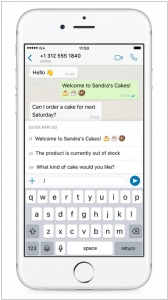
The WhatsApp Business app, previously available only for Android, has now been launched for iPhone users as well. This iOS version offers small business owners a convenient way to connect with their customers on smartphones. It provides various features, such as the ability to create detailed profiles with descriptions, email addresses, physical addresses, and website links. Additionally, the app offers messaging tools for efficient customer communication, including automated greetings, quick replies, and away messages. Furthermore, businesses can access WhatsApp Business from their desktop computers, which now include tools for chat organization, message filtering, and quick replies. As of January, WhatsApp had reported having 5 million business customers. The company generates revenue by charging Business API customers with high volumes of incoming messages.
2019. WhatsApp Business app added customer service features to its desktop and web apps

About a year ago, WhatsApp launched its dedicated app tailored for small businesses. Now, the company is enhancing the usability of the app on desktop and web platforms by incorporating several popular features that were previously exclusive to mobile devices. These additions encompass tools for organizing and filtering chats, as well as facilitating prompt responses to customer inquiries. One such feature is Quick Replies, which enables businesses to swiftly address common customer questions using pre-written responses. It joins a suite of other customer service features, including automated greeting messages triggered when a customer contacts the business account, and scheduled away messages for instances when immediate responses are not feasible.
2018. WhatsApp launched encrypted group video calls
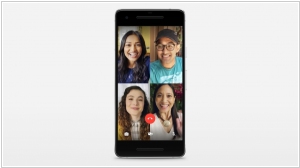
WhatsApp introduced video calling in 2016, initially limited to two participants. However, in a recent update, the app has expanded its video calling support to accommodate a total of four participants. While this increase may appear modest when compared to other services, such as Facebook Messenger allowing up to 50 participants or Skype supporting 25 participants, it presents unique challenges for WhatsApp. The app prioritizes end-to-end encryption for all messages, including video calls, by default. Additionally, WhatsApp must ensure that new features are optimized for users with slower internet connections and older devices. Balancing these factors while maintaining the app's security and performance is crucial for WhatsApp's video calling capabilities.
2018. WhatsApp launches its app for business
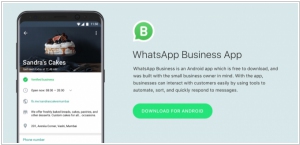
WhatsApp has recently unveiled its highly anticipated WhatsApp Business app in several markets, including Indonesia, Italy, Mexico, the U.K., and the U.S., as a preliminary step before its global release. Designed specifically for small businesses, this free Android app facilitates improved customer engagement and enables companies to establish an official presence on WhatsApp's platform. In essence, it serves as the WhatsApp equivalent of a Facebook Page. With the introduction of this new app, small businesses now have the opportunity to create their own WhatsApp Business profiles by providing essential details such as business descriptions, email addresses, physical addresses, and websites.
2017. WhatsApp launched business-accounts
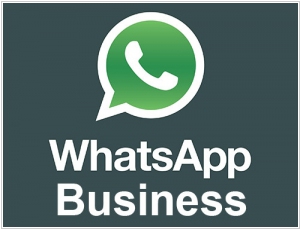
Messager WhatsApp, a messaging platform owned by Facebook, is currently conducting experiments to provide verified accounts to businesses. These business accounts will be marked with a green tick badge, similar to Viber, indicating that WhatsApp has verified their phone number as belonging to a business account. Additionally, WhatsApp will be launching a free app called WhatsApp Business, designed for small-to-medium sized businesses, although the specific features of the app have not been detailed. This enterprise solution will enable global companies to send valuable notifications to customers, such as flight updates, delivery confirmations, and other relevant information. At present, registration for a business account on WhatsApp is available only through invitation.
2017. WhatsApp enabled two-factor authentication for everyone
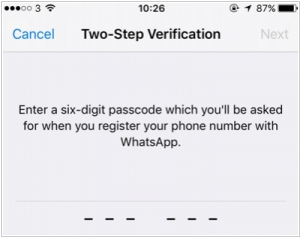
WhatsApp has introduced the option of two-factor verification for all of its extensive user base, exceeding one billion users. This security feature involves utilizing a passcode to authenticate your phone number, significantly reducing the chances of unauthorized access to a WhatsApp account. In response to concerns about user data sharing with the Facebook family of companies, WhatsApp assures users that providing an email address enables the ability to disable two-step verification in case the passcode is forgotten. It's important to note that two-step verification remains an optional feature. To activate it, ensure that you have the latest version of the WhatsApp application installed, access the Settings menu, navigate to Account, select Two-Step Verification, and enable the feature from there.

